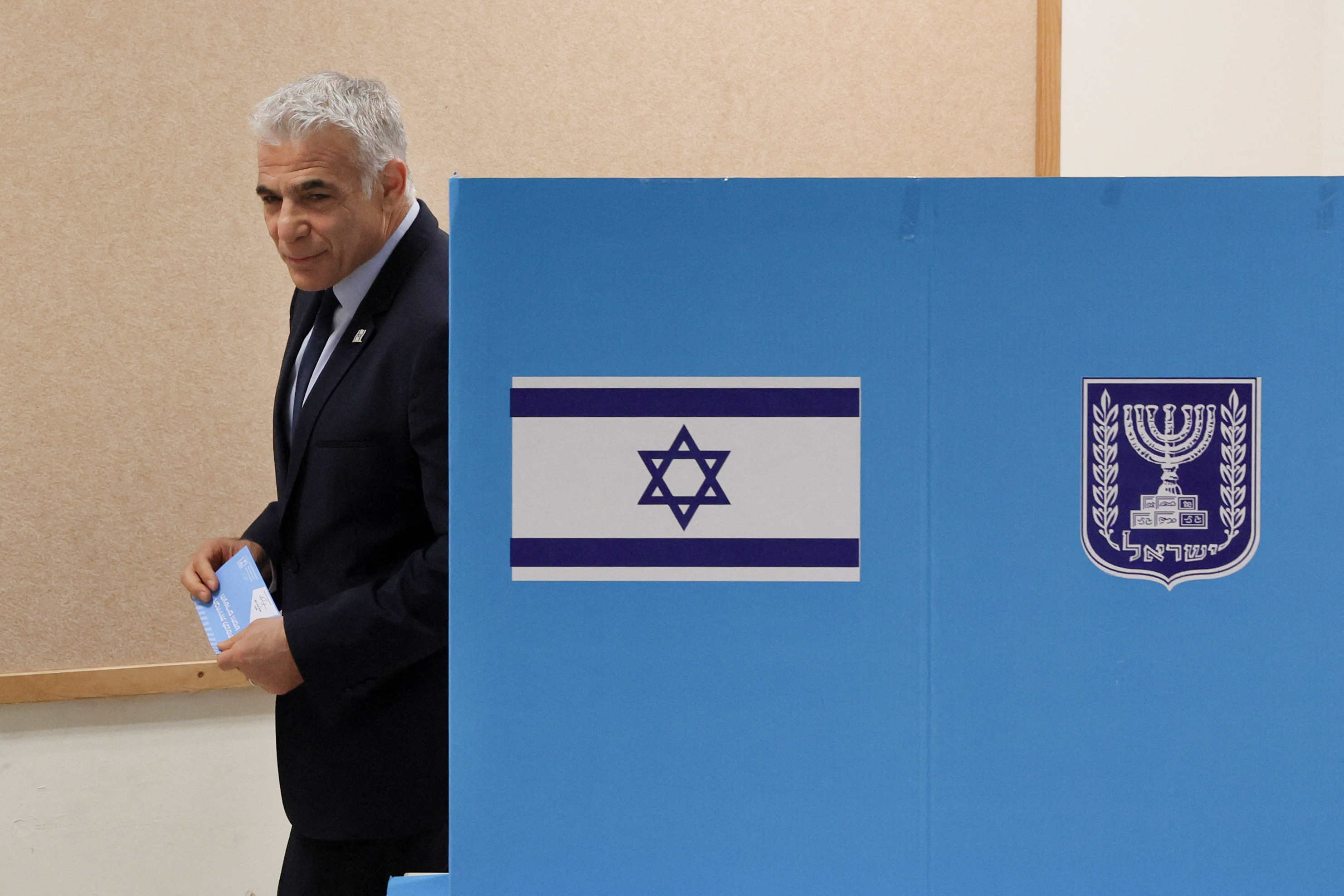
And opinion polls conducted on Tuesday in Israel indicate that Former Prime Minister Benjamin Netanyahu and his allies could have won enough seats to return to power With a nationalist and religious government after three and a half years of political stalemate.
However, opinion polls are preliminary and final results may change as votes are counted in the coming hours.
This is the fifth vote in less than four years in Israel, all of which focus heavily on Netanyahu’s ability to govern.
Opinion polls of the three major Israeli television networks He indicated that Netanyahu and his allies would win a majority in the 120-seat parliament required to form a new government.
The anti-Netanyahu camp led by the current acting prime minister, Yair LapidIt remains in 54-55 seats, according to the first polls released when polls close at 10:00 pm local time (8:00 pm GMT).
Lapid’s formation, the centrist Yesh Atid party (There is a Future), achieved an average of 23 seats, its best result, but the merger of the right, center and left parties that would support it to create an anti-Netanyahu front did not gather enough support.

More than 6.7 million Israelis were called to the polls today for the fifth time since 2019a new electoral appointment that does not seem to lead the country out of instability and political paralysis due to the lack of a clear majority for the two sides in which the ideological arc is divided.
The novelty in this election was the rise of the fanatical Jewish far-right, piling up in the religious Zionist movement – overtly racist, anti-Arab and homophobic – which established itself as the third-most powerful voting power with between 14 and 15 seats, which were added to the pro-Netanyahu camp.
It is the best result in its history, after 6 MPs achieved in the last elections in March 2021 and being a fringe movement until a few years ago.
The hard-line partiesalso allied with Netanyahu, has 17 seats: 10 for Shas, which represents the Sephardic and Haredi Mizrahim, and 7 for United Torah Judaism, the ultra-Orthodox Ashkenazi party.
On the other side of the political arena, in the anti-Netanyahu bloc, the centre-right National Unity Alliance, led by current Defense Minister Benny Gantz, along with Justice Minister and former Likud member Supreme Leader Saar, brings together 12 lawmakers. While the secular ultra-nationalist formation”Israel is our home“I stayed close to the 4 seat minimum.

The left records one of its worst results with 5 MPs for the Labor Party and 4 for Meretz, a progressive and pacifist formation.
Another unknown today is the participation of the Arab community, and if its formations succeed in exceeding the minimum of 3.25% of votes to enter the Knesset (Israeli Parliament): The Islamist Ra’am party could have won five seats – that would go to the side hostile to Netanyahu – and the Front-Tal coalition, which does not support any bloc, got 4.
The Arab Nationalist Gathering, Balad, did not cross the electoral threshold, nor did Jewish Home, a more moderate ultra-nationalist religious formation associated with the former prime minister, Naftali Bennett.
Despite the fatigue of voters, who voted five times in less than four years, turnout was exceptionally high, 66.3% at 8:00 p.m. local time (6:00 p.m. GMT) — awaiting final data to be released at closing from Opinion polls – the highest since 1999 and much higher than in the previous four election appointments, held between 2019 and 2021.
(With information from AP and EFE)
Read on:







More Stories
Nicaragua picks up and delivers to El Salvador four subjects circulated by Interpol
UN experts have warned of serious human rights violations in the context of the presidential elections scheduled for July 28 in Venezuela.
The Organization of American States deploys observers for the US elections